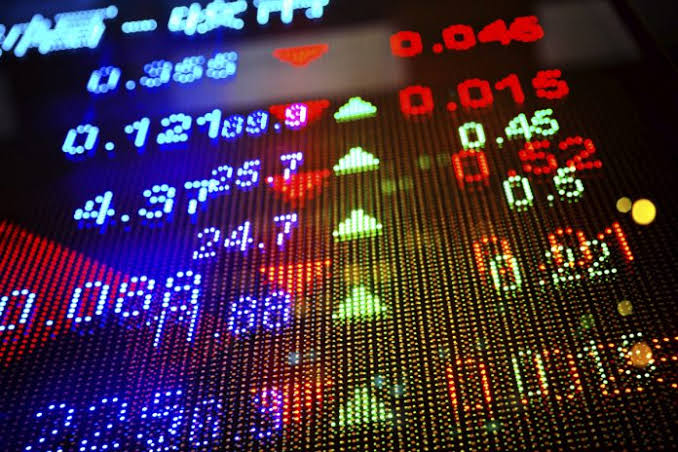
Market cap on the Ghana Stock Exchange reached an all-time high in 1H23.
After a rocky start, the Ghana Stock Exchange (GSE) ended the first half of the year on a positive note as investors continued to find comfort in stocks, driving its market capitalization to an all-time high (ATH) of GH70.24 billion.
Monday, July 3, 2023 marked the end of the first trading day of the second half of the year, and the indicator had increased by 0.14 percent to GH70.34 billion. The GSE Composite Index (GSE-CI), which had its second-highest monthly return to date in June 2023, served as the driving force behind this.
The index, which measures the performance of the entire market, increased by 296.7 points, giving it a year-to-date (YtD) return of 14.9%. Furthermore, according to data from the Accra Stock Exchange, the GSE Financial Stock Index (GSE-FSI) increased by 14.6 points during the month, in part because some key equities in the sector recently had a rebound, cutting their losses since the beginning of the year to 17.6 percent.
The GSE-CI increased 10.3 percent from 2,545.48 points to 2,808.03 points compared to the first half of 2022. In a similar vein, the market capitalization increased by 8.32% from the same time last year.
In contrast, the GSE-CI ended the financial year in 2022 with -12.38 percent, down from a high of +43.66 percent the year before. At the time, it was one of the continent’s worst performers, as investor sentiment kept up with developments in the broader economy.
Increased investor confidence as a result of listed stocks’ success and some of them announcing dividend payment dates are not unconnected to this increase in market capitalization.
The amount and value of trade activity did, however, noticeably decline. Volume and value traded both fell by 87.1 and 86.6 percent as compared to the previous month. Numerous variables, such as market swings and investor caution as elements of profit-taking gained traction, might be blamed for this decrease.
Similar to the cedi’s approximately 20 percent decline against the US dollar, the GSE had a return of -10.1 percent in US dollars.
Managing Director-GSE Abena Amoah made the following remarks about this performance during a Facts Behind the Figures session that the GSE hosted for Société Générale. “In the first half of 2023 performance and what we are seeing now is that there’s a gradual upturn in the equities market,” she said. “The index is up about 14.96 percent – almost 15 percent, and the market cap has also crossed GH70 billion for the first time. We are quite happy about that since it shows that investors are interested in equities and seeking diversity. Investors are responding to the market as a result of robust dividend announcements from several of our listed firms.
Databank Research analysts predicted earlier this year that initial defensive sentiments would normalize as the year went on because of how positively the domestic debt exchange would affect demand for equities, with low interest rates on Treasury securities luring investors to dividend-paying stocks.
This, it continued, will raise the GSE-CI from the 2.443.91 points with which it closed in 2022 to almost 2,737 points (500bps) at the end of 2023.
DEBT MARKET
The Ghana Fixed Income Market (GFIM), which trades short-term government securities, accounts for 77.8% of the market’s activity. At the end of June 2023, the platform recorded 5.41 billion in traded volume. Compared to the previous month, this is an 8.2 percent improvement, although it is still down 78 percent from the same time in 2022.
The GFIM saw trades for GH14.8 million and 4,581,168 worth of activity. Comparing these numbers to the same time last year, there has been a 90.5 and a 67.35 percent reduction respectively. From January to June 2023, there were a total of 40.9 billion trades in the GFIM, which is a decrease of 67% from the 124.1 billion trades made during the same time period in 2018.
You “On the debt market, I believe many are still waiting to see how the government pays its first interest on the new bond in August; and for the overall macroeconomic climate, especially for interest rates to come down so there will be investor confidence. In order to ensure that we have the proper macroeconomic climate to fuel demand in the market, we are therefore carefully monitoring it and involving the appropriate parties, the GSE MD continued.


